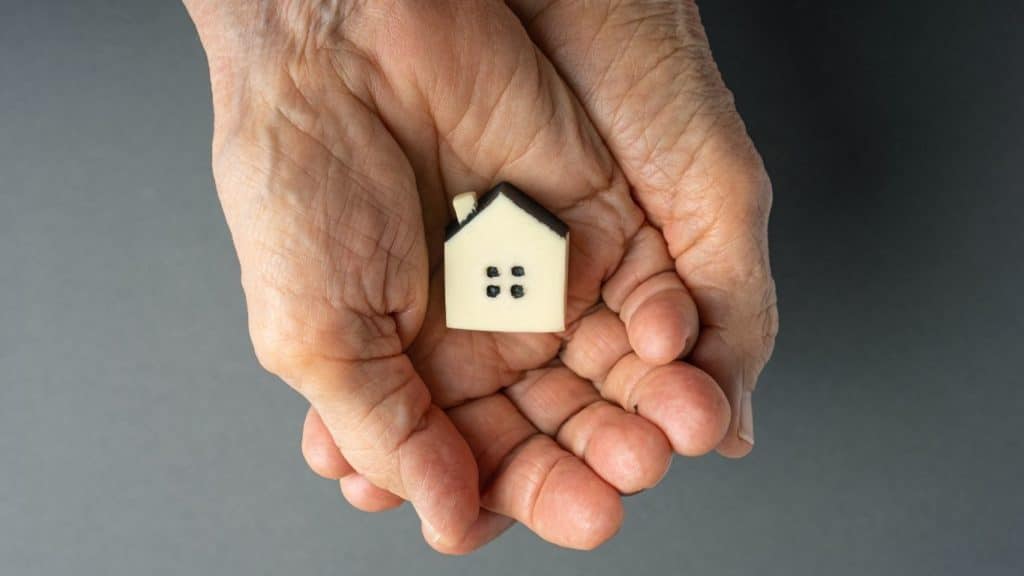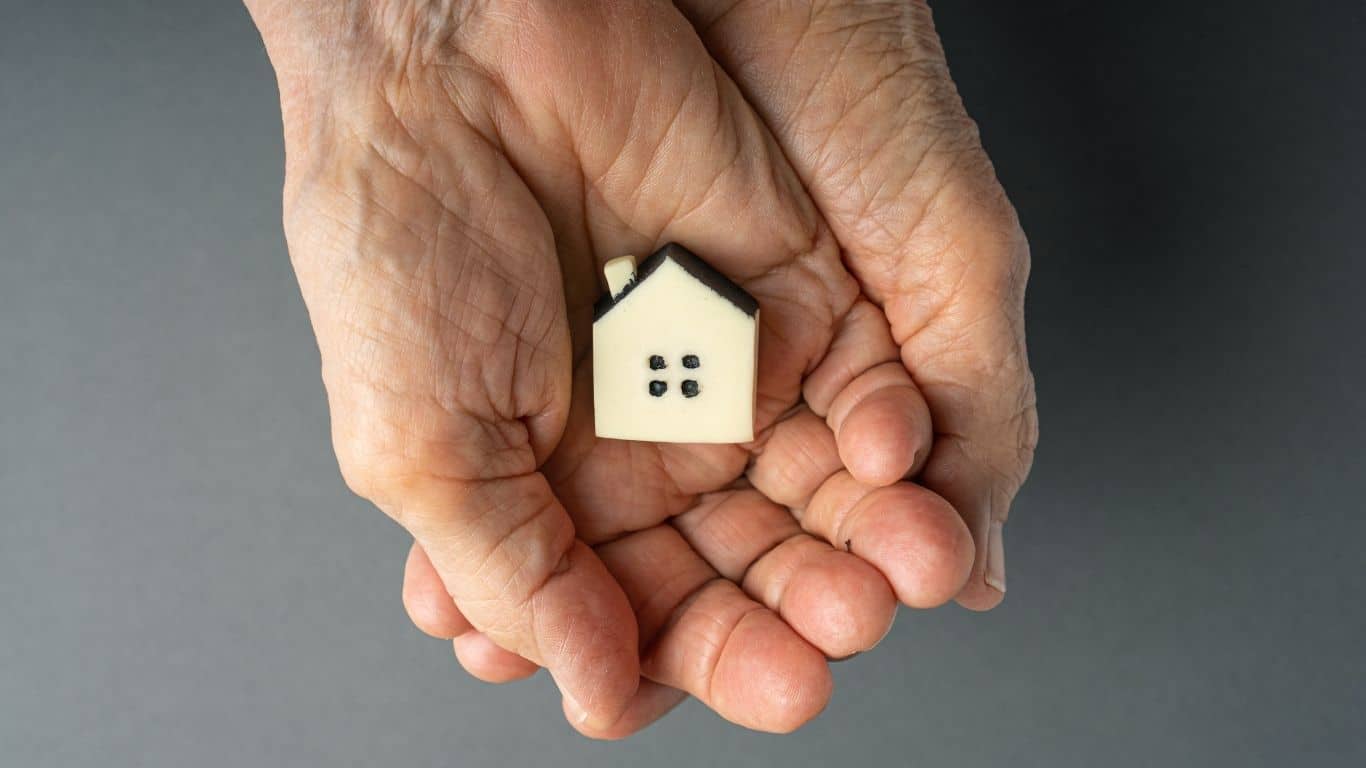Inheriting a property can invoke a whole range of emotions. On the one hand, you are fortunate to be on the receiving end of such a generous final gift from your loved one, while also carrying the grief of his/her departure. On the other hand, many responsibilities come along with owning a property.
While you may be overwhelmed by the passing of a loved one and by the decisions surrounding the newly acquired property, you will want to decide what you will do with the property quickly.

What Are My Options When I Inherit a Property?
There are many options to consider. You can move into the property, or you might want to keep the property in the family for sentimental reasons. But, before doing anything, you will want to consider whether the home’s mortgage is paid off.
If the amount owed on the mortgage is more than the property is worth, it may not make financial sense to take on the debt. If the property requires a lot of maintenance, it could demand more of your time and money than you want to commit.
The decision to move into the property may depend on whether you are the sole inheritor or if the property has been left to several people. If the property has been left to you and your siblings, it may be difficult to decide who should move into the property.
Keep the Rental Property
You can keep the property as a rental property too. If the inherited property was already a rental property, it might seem to make the most sense to keep the property and continue to rent it out.
Keep in mind that although rental properties can generate income, much of that income may be reinvested back into the property for repairs. If you are managing the property yourself, this can also require a lot of time and effort on your part.
Another option is selling the property. For many reasons, you might not want to keep the property. Visiting the property could bring up painful memories, or perhaps you do not have the time for the upkeep of the property.
Keep in Mind: Capital Taxes
Keep in mind that if you sell the property and the property has gained value between the time of inheritance and the time you sell, you will be liable to pay capital gains taxes. Deferring capital gains taxes is one reason to act swiftly if you decide to sell the property.
The amount taxed for capital gains taxes is generally the difference between the purchase price of the property and the price for which you sell the property. However, the step-up tax basis provision means that the property is inherited at its fair market value, so capital gains taxes only need to be paid on the difference between the property’s value at the time of inheritance and the selling price.
Avoiding capital gains taxes is one reason to sell an inherited property immediately.
Another final consideration is to do a 1031 exchange on the inherited property.
What is a 1031 Exchange?
A 1031 exchange means selling the property and swapping it for a new investment property. You will need to carefully consider all the details of the exchange, including specific rules and timing, but doing a 1031 Exchange on Inherited Property to invest in real estate is often a very lucrative financial decision after inheriting a property.
The 1031 exchange gets its name from Section 1031 of the U.S. Internal Revenue Code, which allows you to avoid paying capital gains if you sell your inherited property and buy a like-kind replacement property.
When considering a 1031 exchange on inherited property, weigh every risk, including the time constraints of the transaction. Seek the assistance of a tax advisor before deciding what to do with your inherited property to be sure you are following all the rules of 1031 exchanges.
What Are the Benefits of a 1031 Exchange on Inherited Property?
While 1031 exchanges must follow specific guidelines, many find that they are the best financial decision for many reasons. A 1031 exchange will allow you to:
- Defer capital gains taxes
- Avoid depreciation recapture
- Prevent leaving your heirs with tax liability
Deferring Capital Gains Taxes
When selling a property that has appreciated, the selling price minus the original purchase price is your capital gain, and this amount is taxable.
However, if you do a 1031 exchange and reinvest the proceeds of the sale of the property into a new investment property, you can defer the capital gains taxes. Avoiding these taxes is the number one reason many choose to do a 1031 exchange on inherited property. As long as you use them correctly, there is no limit to the number or frequency of 1031 tax-deferred exchanges you can do, meaning that you can defer capital gains taxes indefinitely.
Continually selling your investment property to reinvest in a replacement property through a 1031 exchange and thus avoiding the capital gains taxes can help your assets continue to grow without you needing to worry about the tax implications.
Avoiding Depreciation Recapture
Depreciation is the percentage of a property’s cost that is written off each year. If you sell a property for more than its depreciated value, the amount of depreciation will be included in your taxable income from the sale of the property. This taxable amount is known as depreciation recapture.
The amount of depreciation recapture increases over time, so if you decide to sell your property down the road, your taxable income could increase dramatically.
If you decide to do a 1031 exchange of the inherited property, you can avoid recapturing the depreciation. Because the proceeds of the sale of the property will not be viewed as taxable income, you could save a substantial amount by doing a 1031 exchange.
Planning Your Estate
1031 exchanges are beneficial for your estate planning. If at any point you do decide to sell your investment property, you will be liable to pay any capital gains taxes and depreciation recapture.
However, if you continually exchange your properties until you pass away, then your heirs will inherit the property at its fair market value without the depreciation recapture or capital gains tax liabilities. This way, the people you leave your assets to will avoid the step-up taxes in the same way you did when you inherited the original property.
What Are the Rules of a 1031 Exchange?
The replacement property must be a like-kind property, meaning that the two properties must be alike in terms of their nature and characteristics. You will have a wide range of options for replacement properties, but you will need to check with your tax advisor to ensure that your potential replacement property meets the criteria.
You must purchase the replacement property as an investment, meaning that it cannot be used for resale or personal use as your primary residence. You can use the new property as a rental property, or it can be used to house a business.
If you follow the guidelines of the 1031 exchange, you may be able to eventually use the property as a vacation home or even your own retirement home. This change in the property’s use must usually take place after at least two years as an investment property.
You must identify the replacement property within 45 days of selling the original property, and the entire transaction must be complete within 180 days. This swift turnaround, especially during a time when you may be experiencing a great deal of grief and stress, is one reason you may wish to seek the help of an investment company.
The proceeds from the sale of the inherited property need to be reinvested in the replacement property within a certain time frame. In addition, because the proceeds from the sale of the property would be taxable, they must be transferred to a qualified intermediary who will then transfer the funds to the seller of the replacement property.
Other Factors to Consider
To take full advantage of the tax benefits of a 1031 exchange on inherited property, you will want to reinvest the full amount that you sold the inherited property for. If the replacement property is of lesser value than the original property, then the difference in price, also known as the “cash boot,” is taxable.
You can, however, reinvest the money in multiple properties, so long as the cumulative value of the replacement properties does not exceed 200% of the selling price of the original property. Perhaps the original property with a value of 2 million dollars has been left to you and your three siblings. It might make the most sense to reinvest in four separate properties each worth $500,000.
If you want to take advantage of the tax benefits of a 1031 exchange on the inherited property but don’t want to take on the full responsibility of managing an investment property, you might want to consider partial ownership. Securities offered by an investment company can give you relief from managing your investment property.
With so many clear financial benefits, it’s no wonder why so many people do 1031 exchanges on their investment properties. Although you must follow strict rules and guidelines to qualify, under the right guidance this could be the perfect investment opportunity.
Take the time to meet with a tax advisor to determine whether a 1031 exchange on an inherited property could be the best option for you.




